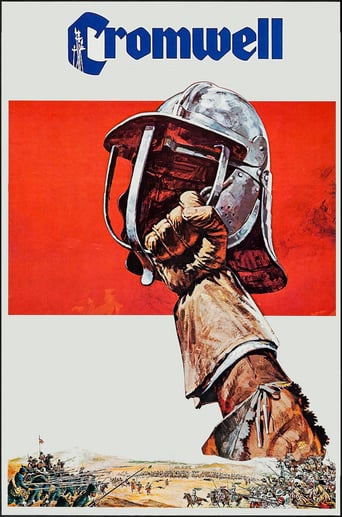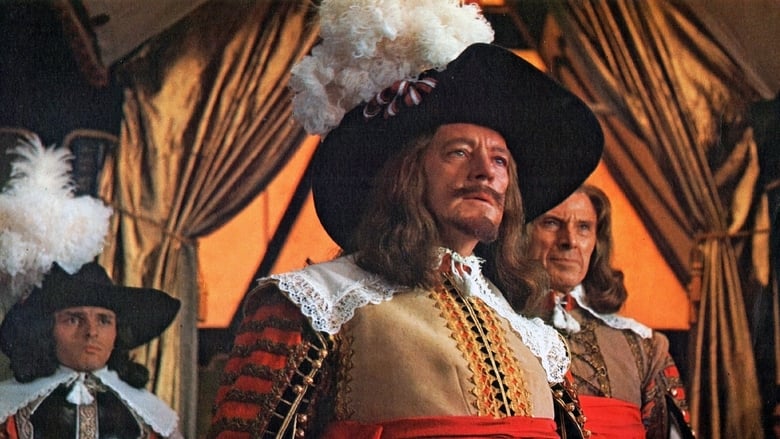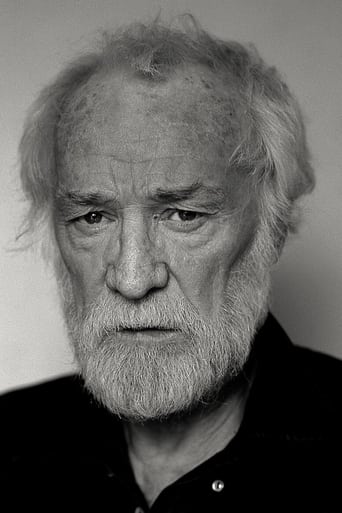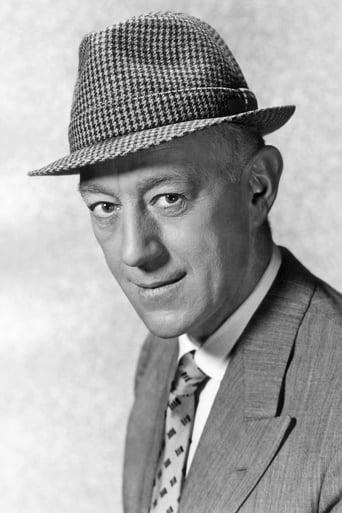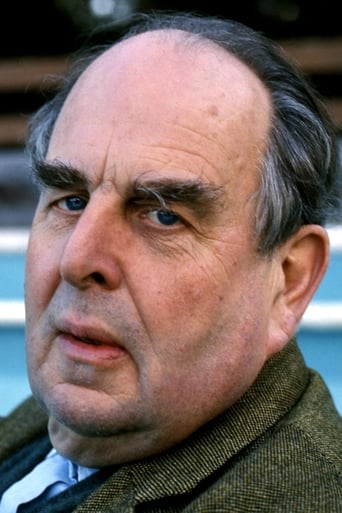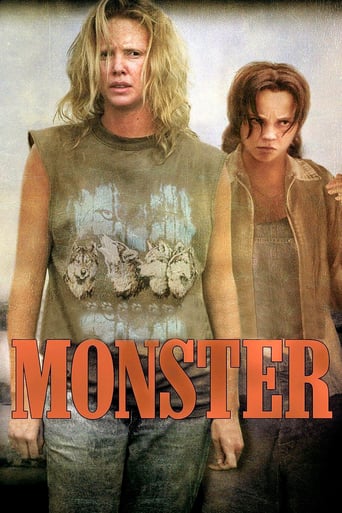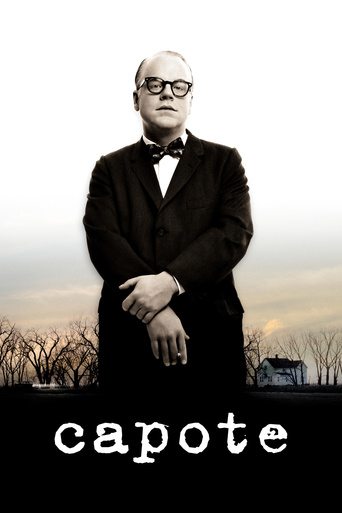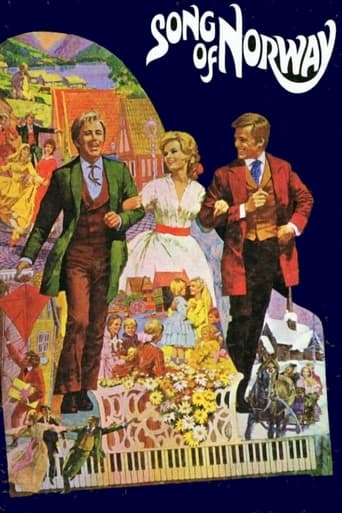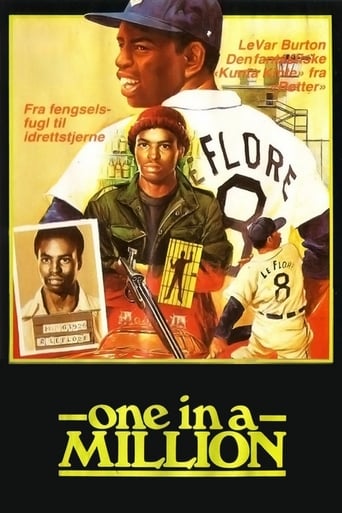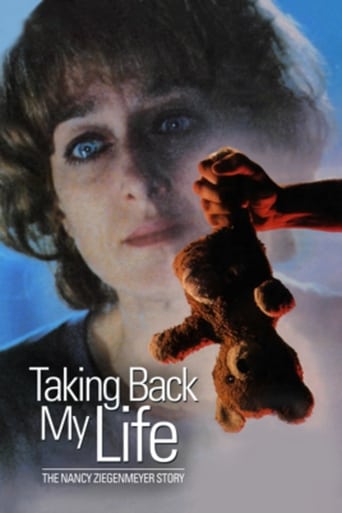Cromwell (1970)
Disgusted with the policies of King Charles I, Oliver Cromwell plans to take his family to the New World. But on the eve of their departure, Cromwell is drawn into the tangled web of religion and politics that will result in the English Civil War.
Watch Trailer
Cast


Similar titles
Reviews
I like the storyline of this show,it attract me so much
Powerful
The story-telling is good with flashbacks.The film is both funny and heartbreaking. You smile in a scene and get a soulcrushing revelation in the next.
A terrific literary drama and character piece that shows how the process of creating art can be seen differently by those doing it and those looking at it from the outside.
Roger Ebert said that this movie's history was as good as one could expect, but otherwise it was pretty bad. I revere Ebert, but he was way off about the history part.The movie is very much concerned that you properly appreciate Cromwell. To this end, it fills the sound track with orchestral flourishes and fanfares and strident Protestant chorales from the first moment Cromwell appears to the last. Not content with this, it shamelessly reworks history in order to put Cromwell in places and roles which the historical Cromwell did not occupy, and to show him performing wonders that he did not perform, in the hope that the viewer will not know enough history to notice, or will just figure that such lies are the necessary means of sanctifying Cromwell. For example, it makes Cromwell one of the five members of parliament accused of treason by Strafford, although he was not. It makes Cromwell a participant in the battle of Edgehill, although he wasn't there. Movie-Cromwell commanded the revolutionaries at the critical battle of Naseby, starkly outnumbered by Charles but routing his forces through brilliant strategy and just plain awesomeness. The historical Cromwell was at least present at Naseby, but Fairfax was in command, and his forces had the edge in numbers. At every point Movie-Cromwell is shown to be the sole unaided leader and savior of the Revolution, whereas the real Cromwell was often a subordinate or part of a larger committee. In short, the movie perjures itself from beginning to end.Now, you could say that there are plenty of history films that get the history way wrong, but are at least fun to watch or produce memorable moments and so on. You might even point out that Shakespeare's histories are bad history but memorable art. Well, Hughes is not Shakespeare, and his Cromwell is not Prince Hal either. Sixty percent of what he does throughout the movie presents a variation on the following: (a) Cromwell asserts a conventional and lofty principle ("I will hear no treason against the king!") (b) He immediately runs up against a harsh reality (One of his men has his ears cut off) (c) He declares that God wants him to throw aside the original principle ("God damn this king!").There are lot of movies about people who have started off with good intentions and made themselves dictators, convincing themselves that it's necessary for the greater good because all the others in government are traitors and thieves, and because democracy (or republicanism, to be more precise than the movie ever is) is just inadequate to the needs of the day. You can argue about whether this is an adequate and fair summary of the career of the historical Cromwell (I don't think so), but it is an exact synopsis of Movie-Cromwell's career. As if to convince you that he has really gone over the edge, movie-Cromwell punctuates his seizure of total power with a long ahistorical populist rant about how he will make England a center of learning where every man can earn his bread.As I say, there are a lot of movies about ranting dictators, but there are not so many where a narrator comes along at the end and assures you that the dictator was perfectly justified by history in all his actions and ambitions! But here, after the above-mentioned rant, supposedly taking place in 1653, (SPOILER) the movie comes to an abrupt end - we never see a frame about Cromwell's service as Lord Protector - we only get the voice of an uncredited narrator telling us that during those five years Cromwell made England a great and respected nation!Now on the issue of religion. We know that the English Civil War had a strong religious element. We don't expect Cromwell and his Puritans to be presented as models of tolerance and ecumenicism. Of course they were opposed not just to the Catholics who back the monarchy but to Catholicism itself. But in fact it looks very much as if Hughes himself is opposed to Catholicism, which is exemplified in the film by Charles' French wife, Henrietta Maria, one of his many evil counselors (and who, out of perhaps 100 words spoken in the film by women, has the plurality), and by a conniving Italian archbishop who attempts to extort all sorts of treasonable favors out of Charles in return for his support. All this in a film released in 1970, during the Troubles! I have no independent knowledge of Hughes' sympathies in religion or Irish politics. We are informed that this biopic was a "dream project" for Hughes, the product of ten years of research. We do know that Cromwell was a particular hero to the Orange Order. We can see that Hughes wrote and directed a film dedicated to the particular virtues of Cromwell during the time when Catholics in Northern Island were launching a civil rights movement (1964) and loyalists were responding by creating paramilitary forces (1966). The film is full of fake history - did he compose the lies himself, or just uncritically trust some dodgy source? Hughes actually filmed scenes of Cromwell putting down Catholics in Ireland, which were ultimately cut from the final film as just too inflammatory.And even if one ignores the whole Irish context, the message that national revival can best be handled by a single man who says "I alone can fix it" - no, that was someone else, Movie-Cromwell says "I must do it all alone" - doesn't play well in 2018. To me, anyway.
I do like a good historical drama and this 1970 epic certainly fits the bill. Of course there were a lot of them around at this time what with "Waterloo", "Nicholas And Alexandra", "A Man For All Seasons" and others. Like so many films of this type, the action centres on two main characters played by lead actors of some weight and that's certainly the case here with Richard Harris essaying the title role and Sir Alec Guinness as his royal nemesis Charles I.At first I thought Harris would be too physical an actor for his part, but once you get used to his endless prowling, staring shouting, he gives a strong performance, although he certainly doesn't fit my mental image of Cromwell's appearance, despite the inclusion of the famous warts on his physiognomy. Guinness is quite superb as the haughty monarch whose pride precipitates the fall of his head, displaying the King's over-reliance on other's opinions, especially his Catholic wife's, his puzzlement when things go wrong and lastly his regal loftiness when put on trial by what he would no doubt term his inferiors.I understand that some liberties were taking with the depiction of real life personages and events of the time, which is I think a shame as the director has obviously sought a realistic approach in every other aspect. The battle scenes are well-drilled although occasionally you can see lesser numbers at war than there should be and I also felt I could see where cuts were made to make the film less than a marathon watch, particularly Charles' capture and his trial.The sets and costumes are fine although I found the supporting cast somewhat varied in quality. Overall though this was an interesting study in the battle between royal privilege and the free-will of the people. The latter won and Cromwell duly assumed the title of Lord Protector (a king in all but name), but his elevation was short-lived and England duly returned to the Monarch with the return of Charles' second son Charles II only five years later.
It is strange indeed that there is such a variety of interpretations of the film, quibbles about historical accuracy etc. when the closing narration both makes crystal clear what the film's purpose is and makes claims far more controversial than the film's strongest detractors have noticed. The narration celebrates the change from absolute to a constitutional Monarchy and Cromwell for bringing it about. It says that the 5 years of Cromwell's "reign" brought about an England "feared, respected and powerful". It takes obvious pride in him not just on England's behalf but much more widely as having established the principal of the primacy of parliament over the monarchy. Surprising that reviews quibbling over points of historical accuracy don't mention this narration with its central claim and entirely uncritical celebration of Cromwell.Since 1899 a statue of Cromwell has had a prominent location in the gardens of the British Houses of Parliament, something not without controversy from then until now. The statue's continuing presence can be read as Parliament's loud - and proud - assertion of its primacy.The script and the choice of one of the UK's finest actors, Alec Guinness, gave a gracious and nuanced portrayal of Charles 1. The choice of Richard Harris added to a blunt, forceful and determined Cromwell. The portrayal of a Parliament left to make up its own rules - and Cromwell's dramatic return with the Army to impose his view is memorableIt is a fine and interesting film, also a history lesson but one not everyone would celebrate. It is about politics, not pageantry
You have to look at this film as it is, excellent acting, superb costumes and at brief moments, some wonderful landscape shots. Its description of our history a little simplistic (but at least not in 'lets dumb it down for the American market' terms!) to to fully embrace the facts really does need a lot of staying power, I mean have you read S.R.Gardiners three or is it four volume work on 'History of the great Civil War'?. Trust me this concise version is more preferable.Prince Rupert was indeed a vile German nephew of Charles, ask the 'brummies' of that period, so him being deported was a most enjoyable ending, as was the verbal insult to him being a 'foreign mercenary' by a parliamentarian at first battle.But you know really, right at the end when you listen to Cromwell talking of creating schools and University's for the people; to create a democracy and be their own Government... its still holds up today, such stiring stuff. Churchill wanted to name the 'Spitfire' after Cromwell, he had to settle for the Tank in stead.

